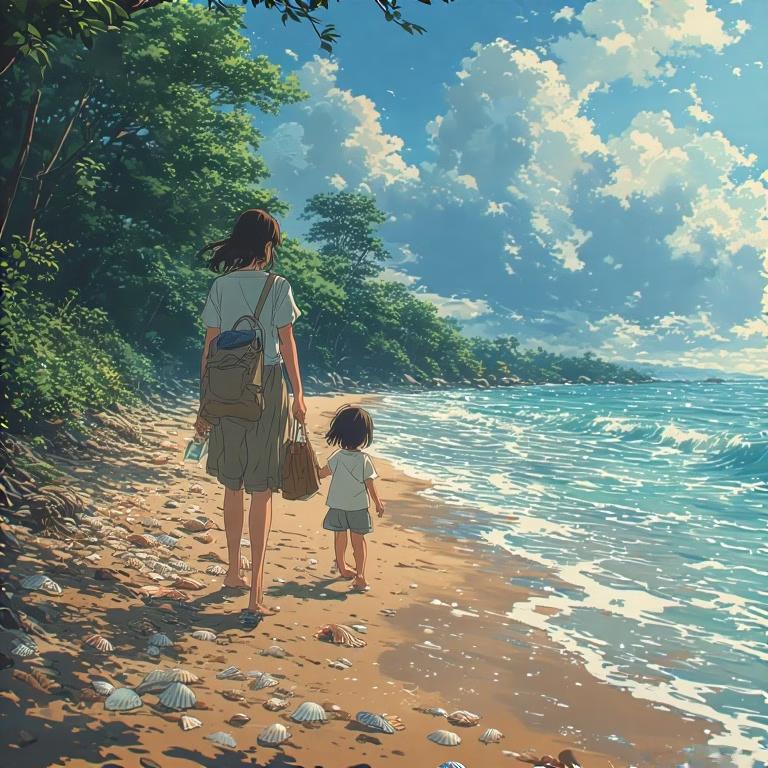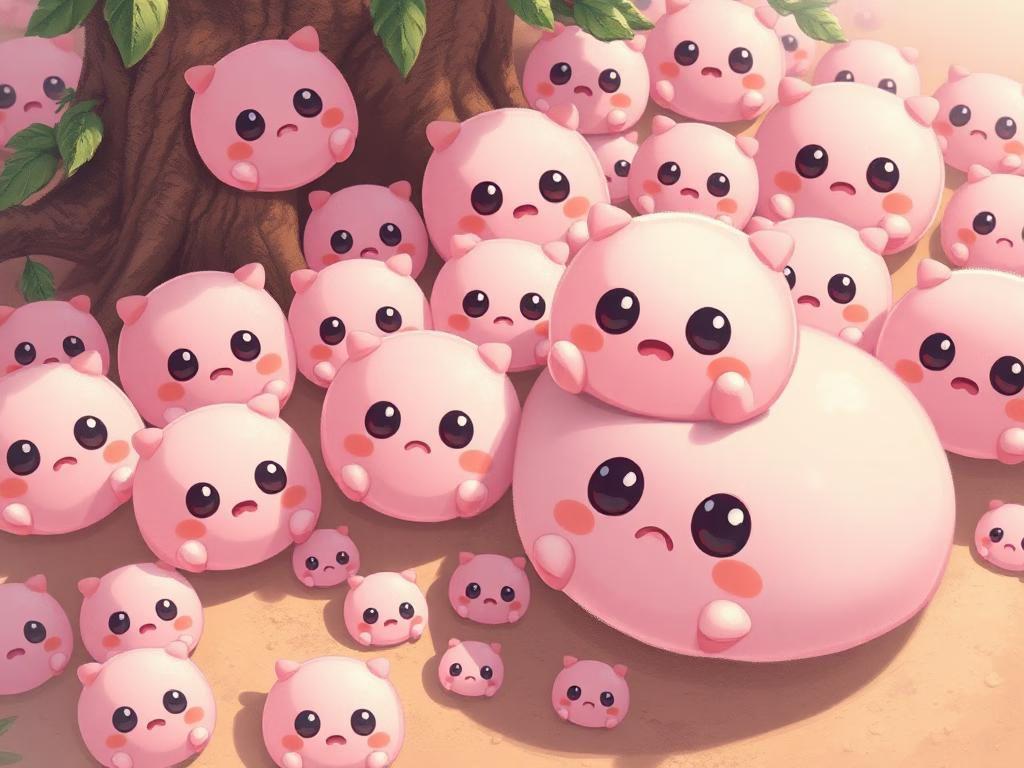
“Mom never used to collect seashells,” Emma said, holding up a spiral shell the color of seafoam. “She used to run from them.”
Her best friend, Lily N, squinted at the shell like it might whisper secrets. “Maybe she changed,” she said.
“Or maybe she forgot how,” Emma whispered back.
It had been three weeks since Mom came home from Singapore. She brought back fancy chocolates no one wanted, a suitcase that smelled faintly of airport air, and silence – thick and quiet, like fog over the bay. Before she left, Mom laughed easily, danced while washing dishes, and called Emma “my little tide-puller.” Now, she moved through the house like a shadow, her smile thin as paper.
So Emma started walking the shore every evening when the tide slipped away, leaving behind wet sand and treasures. That’s where she found the first clue: a tiny blue glass bottle, half-buried near the rocks. Inside was a rolled-up note in handwriting that wasn’t Mom’s – but looked familiar.
For whoever finds this: I wish I could fly like a tern. – Lily X
“Lily X?” Lily N gasped. “That’s my cousin! She lived here ten years ago!”
Emma’s heart jumped. “Then this bottle’s been here forever.”
“Or,” Lily N said slowly, “someone put it back recently.”
They dug deeper. Under a driftwood log shaped like a sleeping dog, they found a smooth stone painted with a red star. On the back, in faded ink: Anna says stars guide us home. And tucked beneath a cluster of barnacles – another note. This one read: Eddy dared me to swim to the buoy. I did. Almost drowned. Worth it. – Bell.
Emma stared at the names. “These are all people Mom knew when she was young.”
Lily N grinned. “You’re not just collecting shells, Em. You’re finding your mom.”
That night, Emma spread the clues on her bedroom floor like puzzle pieces. Her fingers traced the words Bell had written. She imagined her mom – so serious now – as a wild girl diving into waves, laughing, daring.
The next day, Emma didn’t go alone. She brought a small basket and asked Mom, “Want to walk with me?”
Mom hesitated, then nodded.
They walked in silence at first, the kind that used to make Emma’s chest ache. But today, she wasn’t afraid. She pointed to a sand dollar half-covered in silt. “Look! Like a secret coin.”
Mom crouched slowly, picked it up. “I used to think these were mermaid biscuits,” she said, so softly Emma almost missed it.
Emma’s breath caught. “Did you really?”
Mom smiled – a real one, warm and wobbly. “Yes. And I’d leave them for others to find. A gift from the sea.”
“Like messages in bottles?”
Mom stilled. “How do you know about those?”
Emma pulled out the blue bottle. “We found this. From Lily X.”
Mom took it, turned it in her hands. Her eyes shimmered. “Lily… we built a fort in the mangroves. We swore we’d sail to Madagascar one day.” She laughed, a sound like wind chimes after rain. “We never even made it past the jetty.”
Emma sat beside her on the damp sand. “Why did you stop coming here?”
Mom looked out at the water, pulling back now with the tide. “When I left for Singapore… I thought I had to become someone new. Stronger. Quieter. I thought feelings were heavy. So I packed them away.” She touched the sand dollar. “But the sea doesn’t forget. It brings things back.”
“What else is out there?” Emma asked.
Mom stood, brushing sand from her jeans. “Only one way to find out.”
Every evening after that, they walked together. They found Hyuga’s old kite tangled in sea grape vines – still bright with dragons. Pye’s carved initials in a rock, hidden behind a tidal pool full of darting fish. And near the lighthouse path, a shoeprint fossilized in drying mud, with the name Alexis scratched beside it.
“She taught me to skip stones,” Mom said, skipping a flat one across the shallows. Plink. Plink. Plink. “Three times. Just like that.”
Emma tried. Her first stone sank. The second bounced once. The third? Plink-plink-plink! “I did it!”
Mom clapped, her laughter rising like gulls into the golden sky.
One evening, Emma handed her a plain white shell. “This one’s blank. No message.”
Mom studied it, then pulled a tiny pen from her pocket – the kind that came with the Singapore chocolates. Carefully, she wrote on the inside:
To Emma: I’m learning to come back. Love, Mom.
She placed it gently in the sand near a tide pool. “Now it’s your turn to find it someday.”
Emma hugged her, tight, breathing in salt and shampoo and something sweet she hadn’t smelled in months – home.
The sea keeps many things. Lost sandals. Forgotten toys. Wishes scribbled on napkins. But most of all, it keeps time. And sometimes, if you walk the shore at low tide, you can find what was lost – not just in the sand, but in the heart.










